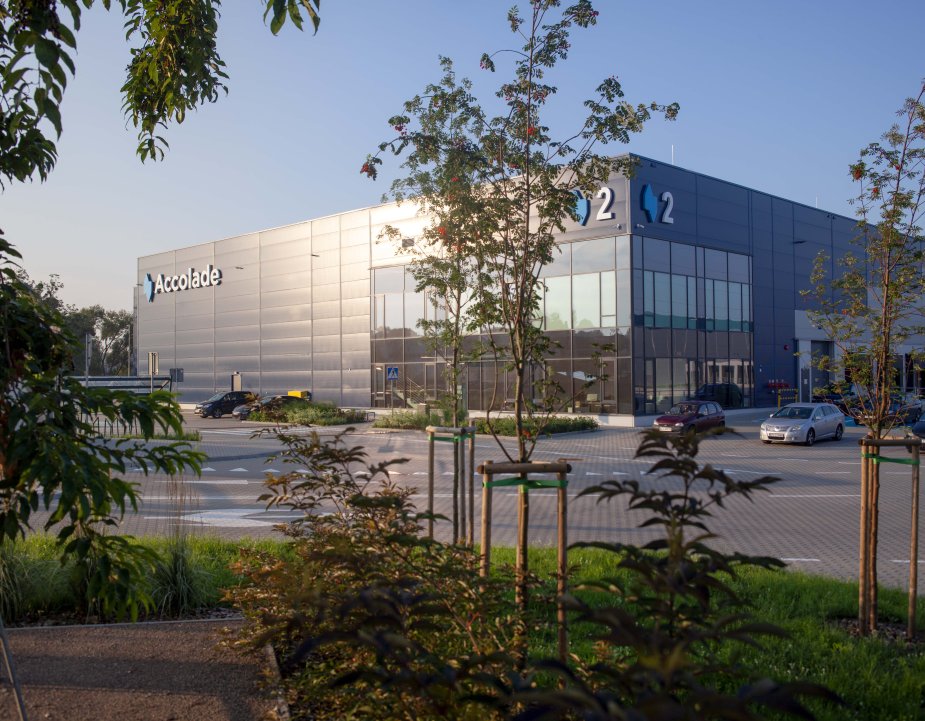Accolade: Fewer Banks but Better Terms – Poland’s Commercial Real Estate Financing Market is Maturing
Although the number of banks actively financing commercial real estate in Poland is not increasing—in fact, we are seeing consolidations and exits—investors are benefiting from increasingly favorable financing conditions. Banks are under growing competitive pressure, showing greater flexibility, offering lower margins, and demonstrating more willingness to support green investments. According to Jakub Leszczyński of Accolade, an international commercial real estate investor, this is a sign of a maturing market that, despite its limitations, remains stable and competitive.

Recent months have brought major reshuffling in the Polish banking sector, with direct implications for the commercial real estate market. Some banks are exiting Poland, while others are preparing to enter or re-enter after years of absence.
“On the one hand, we are witnessing market consolidation, meaning the number of active institutions is formally shrinking. Citi Handlowy is leaving Poland, with its portfolio being taken over by VeloBank. PZU is currently weighing several scenarios for Alior Bank, including a potential takeover by Bank Pekao. On the other hand, new or returning players with strong capital bases and regional expertise are entering the market, such as Erste and UniCredit. Erste Group, by acquiring Santander Bank Polska, is entering with full force a market where it had previously been active mainly through syndicated financing. Meanwhile, UniCredit, which once sold Pekao, has reasserted its presence in Poland through the acquisition of Aion Bank. While these moves do not formally increase the number of institutions, they enhance the overall quality of offerings in the financial sector. New players bring fresh perspectives, regional know-how, and access to international capital,”
– says Jakub Leszczyński, Transaction Director at Accolade Poland.
Fewer Projects, Stronger Competition, Better Terms
In the logistics market, we are seeing a decline in the number of new developments—a paradox that ultimately benefits investors. Given the more cautious approach to corporate financing and persistently low levels of M&A activity, banks are increasingly motivated to compete for clients in commercial real estate. At the same time, ESG requirements are gaining importance. A “green” project is cheaper to operate and, even though systemic mechanisms or incentives that would provide banks with cheaper interbank capital for such investments are still lacking, the benefits are reflected in more favorable financing terms.
“This is a qualitative shift. We are seeing banks becoming more aggressive with their offers: margins are falling, leverage levels are rising, and institutions are more flexible in negotiating deal structures and financing parameters. Added to this are the effects of lower interest rates and an improved macroeconomic outlook, including inflation stabilization, which together significantly enhance financing conditions. An interesting new trend is the increasing competitiveness of Polish banks at the stage of investment loans—those granted for the post-construction and commercialization phase of commercial real estate projects. A few years ago, German banks dominated this segment, but today they are constrained by regulatory limitations, stricter lending policies, and greater instability in their local real estate markets. As a result, Polish institutions are beginning to offer better terms. A good example is the refinancing obtained late last year by Accolade for the development of several industrial parks, carried out by a consortium with a Polish bank as agent. The importance of financing for green investments is also growing, though banks’ approaches to ESG remain inconsistent in Poland. Polish institutions vary in how they assess environmental aspects—some emphasize certifications such as BREEAM, energy efficiency, or other reporting standards. However, there is a clear and growing emphasis on sustainability. Projects that meet ESG criteria are more attractive financially, loans are often cheaper, and investment risk is lower,”
– the Accolade expert adds.
Resilience and Increasing Independence
The Accolade expert emphasizes that while the number of banks actively financing commercial real estate in Poland has not grown—something that would benefit clients—competition among institutions is rising, and the market is becoming increasingly mature.
“At the investment stage of a project, where both Polish and international banks are active, there are more options for financing or refinancing and negotiating better terms. However, the construction phase of commercial real estate financing remains a challenge. For operational reasons, most offers come from Polish banks, and their number is limited. As a result, market participants may still face restrictions linked to credit limits and maximum exposures to individual clients, which is also why Polish banks often need to finance projects in consortia, sometimes involving international institutions. But there is good news: this factor is partly offset by the steady increase in available financing volumes and higher credit limits granted for medium- and large-scale logistics projects. This marks a significant change compared to a few years ago,”
– says Jakub Leszczyński of Accolade Poland.
He concludes: “For the market’s competitiveness to keep growing, we still need a greater number of active financing institutions. Investors require refinancing opportunities, the ability to move loans between banks, and broader access to capital. Despite the dynamic changes—acquisitions, exits, and the absence of new banks—the Polish market remains competitive. This reflects its resilience and growing professionalism. No one can predict how ownership changes will ultimately shape banks’ offerings, but we can already see that these shifts are qualitative and unique, especially after a period of slower transformation in banking ownership structures.”